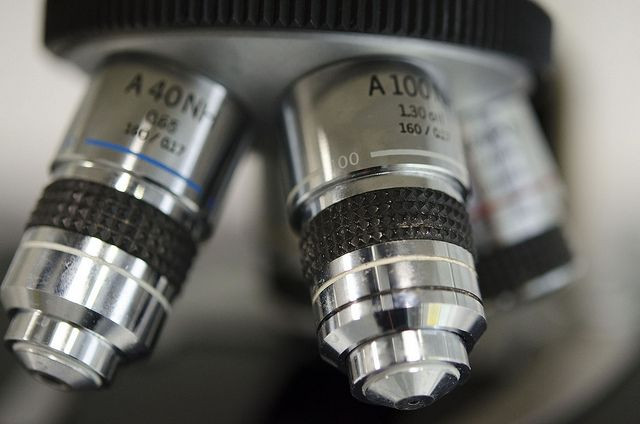Cancer Cells 'Commit Suicide' After Exposure To New Drug Combination: Genes Dramatically Improve Efficacy Of Chemotherapy

Knocking out two specific genes may transform cancer treatment for up to 50 percent of patients, according to a new study. Researchers from the Massachusetts Institute of Technology have discovered that by blocking the genes p53 and MK2, cancerous tumor growth may respond significantly faster to cytotoxic treatments like chemotherapy. The findings may lead to new, more effective drug combinations.
About half of all cancer patients are thought to have a mutated form of the gene p53. The mutation, which messes with the gene’s tumor-suppressing protein product, has been tied to lower cancerous cell death during chemotherapy. Essentially, the mutated p53 allows cells to escape apoptosis — or, programmed cell death — even when chemotherapy has wrecked its DNA. For some time, researchers have been looking for ways to circumvent this type of drug resistance.
Published in the journal Cell Reports, the new study posits that by blocking both the mutated p53 and the related gene MK2, optimal cell death may be restored. According to senior author Michael Yaffe, such gene inhibitors are already in trials to treat inflammatory diseases like arthritis and colitis. "What our study really says is that these drugs could have an entirely new second life, in combination with chemotherapy," he said in a press release. "We're very much hoping it will go into clinical trials [for cancer].”
To test the drug combination, the researchers designed an experiment with a mouse model of non-small cell lung cancer. The subjects, who had been genetically engineered to express the mutated p53, were given MK2 and p53 inhibitors along with the chemotherapy drug cisplastin. The results were then compared to a group of control subjects who did not receive the MK2 inhibitor.
Yaffe and colleagues found that while the control group displayed functional tumor growth after the treatment, the trial group exhibited drastic reductions in cancerous cells. The team theorizes that without the MK2 gene, cancer cells are coaxed into unsustainable division, as they no longer register the genetic toll of chemotherapy. "Usually p53 is the main driver of cell death, and if cells lose this pathway they become very resistant to different treatments that cause cell death," the researchers explained. "Our data suggested if you block the MK2 pathway, tumor cells wouldn't recognize that they had DNA damage and they would keep trying to divide despite having DNA damage, and they would end up committing suicide."
The current study thus recalls a similar breakthrough published earlier last year, titled “Sorafenib/Regorafenib and Phosphatidyl Inositol 3 Kinase/Thymoma Viral Proto-Oncogene Inhibition Interact to Kill Tumor Cells.” Researchers from Virginia Commonwealth University describe a new drug combination that causes cancerous cells to eat and digest themselves, literally. Hopefully, both studies will inspire a new wave of more effective chemotherapy.
Source: Sandra Morandell, H. Christian Reinhardt, Ian G. Cannell, Jacob S. Kim, Daniela M. Ruf, Tanya Mitra, Anthony D. Couvillon, Tyler Jacks, Michael B. Yaffe. A Reversible Gene-Targeting Strategy Identifies Synthetic Lethal Interactions between MK2 and p53 in the DNA Damage Response In Vivo. Cell Reports. 2013



























